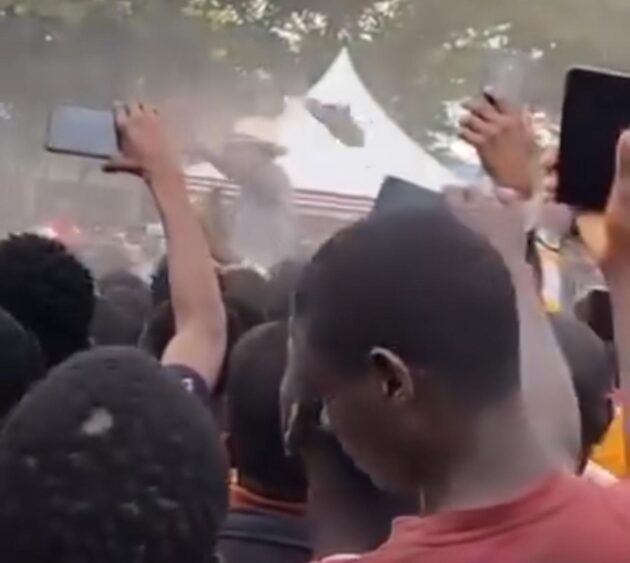
Security expert calls for overhaul of the presidential protection protocols after Ruto-shoe hurling incident in Migori » Capital News
NAIROBI, Kenya, May 5-A security expert has called for an urgent need to professionalize Kenya’s protective services following a security scare during a public rally in Kehancha, Migori County, where a shoe was hurled at President William Ruto.
George Musamali, a former police officer and a security analyst said the incident exposed glaring weaknesses in the country’s VIP protection protocols, which he described as outdated and in need of a comprehensive overhaul.
Speaking to Capital News Musamali described the Migori incident as a serious lapse in security that could have turned tragic had the situation escalated into a stampede or involved a more dangerous object.
“What happened was extremely dangerous. If a stampede had ensued, even the president could have been a victim,” he said.
“It could have been anything – not just a shoe. It could have been a projectile or something else capable of turning the situation tragic.”
Musamali also criticized the broader structure of VIP protection in Kenya, saying it often lacks professionalism, coordination, and discipline
He cited the chaotic transition between former President Uhuru Kenyatta and President Ruto as an example of poor coordination in the handover of security arrangements, which he believes exposed structural weaknesses in the system.
“We all saw how haphazard the handover was. It exposed gaps in how we manage transitions and security of our VIPs,” he said.
To improve the situation, Musamali recommended a formal induction and training process for all security officers assigned to elected officials—including the President, Members of Parliament, and governors—to ensure professionalism and consistency.
Musamali also criticized the tendency of political leaders to choose bodyguards based on personal relationships rather than professional merit.
“We have seen cases where leaders pick close allies with no formal training in VIP protection. That compromises the effectiveness of the entire security team,” he noted.
While acknowledging that the Presidential Escort Unit (PEU) should not shoulder all the blame in relation to Sunday’s security breach, Musamali said sometimes the protectee – in this case, the president – may override the advice of his security team for political optics.
Musamali explained that security officers occasionally struggle to enforce safety measures when leaders insist on engaging closely with crowds.
“The Presidential Escort Unit is not solely to blame; sometimes the principal (the leader being protected) can be overbearing,” he explained.
He explained that unlike in some advanced democracies where protective units have full authority to enforce security measures—even against the wishes of the protectee—African contexts often discourage such assertiveness, for fear of appearing disrespectful or insubordinate to the appointing authority.
The expert further warned against the growing trend of politicians addressing crowds from the rooftops of vehicles, saying such positions expose them to potential threats and limit the reaction time of their protectors.
“The security team needs enough space between the principal and the crowd. That space allows them time to react and evacuate if necessary,” he said.
Musamali urged Kenya’s protective services to borrow best practices from agencies like the U.S. Secret Service and called for greater proactiveness from intelligence agencies.
“Take the Meru incident where the President was heckled — that should have been anticipated and mitigated by intelligence teams,” he said.
He urged Kenya’s protective units to adopt best practices from international counterparts, such as the U.S. Secret Service and South Africa’s Presidential Protection Service (PPS).
The expert also called for better coordination with intelligence units to anticipate and defuse risks before they escalate.
“You remember the Meru incident where the president was heckled – that should have been anticipated and mitigated,” he said.
The Kehancha shoe-throwing incident is just the latest in a series of security breaches that have cast doubt on the effectiveness of the Presidential security arrangements before, during and after the high-profile events.
During a tour of Nairobi last month, criminal gangs exploited the chaos of the President’s visit to rob and assault civilians, despite the heavy presence of security officers.
The episode raised questions about the PEU’s ability to secure not just the President, but also the surrounding public during his engagements.
In another breach last year in Kakamega, a man managed to break through the security cordon and attempted to reach President Ruto at the dais before he was quickly subdued by guards—a close call that again exposed gaps in security planning.